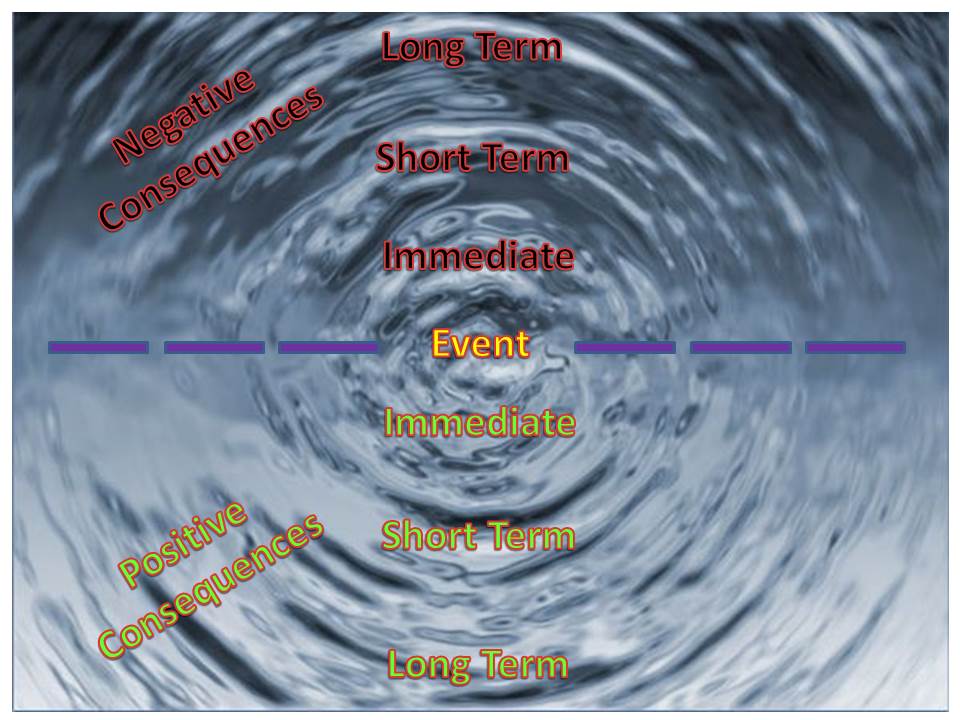Consequence Quiz
- August 16th, 2017
- Back to Posts
This is a little tool I came up with to both assess kids’ ability to consider consequences and to start conversations about decision-making. It’s called the Consequence Quiz. There’s no score and no right answers. It’s just a way of exploring. The important part is teaching kids to consider consequences beyond the moment of action or decision. Kids (and adults for that matter) often struggle to think beyond the moment and their decisions and actions reflect that. If we can teach them to cast their minds into the possible future, it may guide them down a different path. Also, it is a useful way for parents to see the utility of a child’s behavior. We might find ourselves reviewing a child’s action with a statement like, “What the heck were you thinking?” I use the word statement intentionally, even though it is grammatically a question. That’s because when we use that phrase, we often don’t mean it as a question, but are conveying the message, “that was really dumb”. Walking through the consequence quiz or coming up with your own scenarios might give you a window of insight into the answer to that question.
Some time ago, some friends and I watched as a dog found some poop in a field and joyfully rolled around in it like he had won the lottery. It led to the predictable question, “why would a dog enjoy rolling in gross stuff?” Of course, with google on board, there’s no reason not to know things, so I looked it up. Among several answers I found, someone posed the philosophical question, “What if dogs don’t think it’s gross?” The thought hadn’t even occurred to us.
When we ask someone what they were thinking, what if we actually asked in curiosity? We might learn something from the answer. Anyway, I’ve included the quiz below, with some instructions.
Consequence Quiz
Try to think of all the possible consequences from each of these actions:
- I am bored and tired of doing my homework so I take a break and do something more interesting.
- I take some food from the kitchen even though I’ve been told not to take it.
- My friend dares me to climb onto a car in a parking lot.
- I scream at my mom that I hate her and never want to see her again.
- I see someone picking on someone else and I decide to teach the bully a lesson by fighting him.
- I get really angry and punch the wall really hard
- I want my parents to listen to me but they keep interrupting. I yell at them to get my point across.
- When I go for a bathroom break at school, I try to make it take as long as possible.
- I get a nice present from my family for my birthday. I don’t take care of it and eventually it breaks.
- I try risky stunts on my bike/scooter/skateboard without a helmet
- I feel so angry or sad that I want to hurt myself so I cut myself with a knife.
- Someone else has been doing something that hurts me. I decide not to tell anyone.
For each action, think of both positive and negative consequences. In addition, try to arrange the consequences into three groups:
- Immediate
- Short-Term
- Long-Term
For example, if I don’t do my homework tonight
- (IMMEDIATE) I get to do what I want; avoid the stress of figuring stuff out; parents will get mad; might have to lie about it when asked
- (SHORT-TERM) I will get in trouble at school; I won’t understand what the teacher is talking about in class; might have privileges taken away
- (LONG-TERM) I might develop a bad habit of avoiding difficult things; fall further and further behind in school; lies will catch up to me, leading parents to not trust me;
Of course, there are many more possibilities, but you get the idea.

